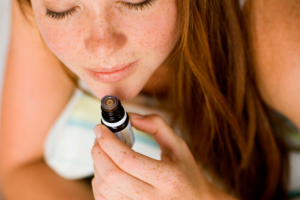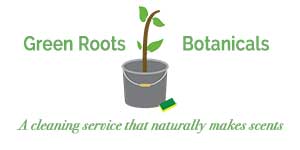Understanding Essential Oils: A Comprehensive Guide to Aromatherapy
Introduction
Are you curious about plant therapy essential oils but unsure if they’re right for you? Perhaps you’ve heard your best friend rave about them after attending an essential oil home class, but you’re still skeptical. Can these tiny bottles of essential oils really change your life? Are they suitable for everyone? Is aromatherapy just a gimmick? In this article, we will delve into the science behind essential oils to help you feel more comfortable with incorporating them into your daily life. Rest assured, these tiny bottles of essential goodness are not as intimidating as they may seem. Every household can benefit from the use of essential oils.
What Are Plant Therapy Essential Oils?
Plant Therapy essential oils are volatile liquids distilled from plants, primarily composed of carbon, hydrogen, and oxygen atoms. They have been used for thousands of years, with references to them dating back to biblical times. As society seeks more holistic approaches to healthy living, essential oils are gaining popularity. In this article, we will explore the world of essential oils and aromatherapy, providing a brief history of essential oils, explaining why plants produce essential oils, how the oils are extracted, and why everyone can benefit from aromatherapy.
The Origins of Essential Oils
The term “essential oil” originates from the concept of “quintessential oil,” derived from the Aristotelian belief that matter consists of four elements: fire, air, earth, and water. The fifth element, or quintessence, was considered the spirit or life force. Distillation and evaporation were thought to extract the spirit from the plant, and this idea is reflected in our language through the use of the term “spirits” to describe distilled alcoholic beverages. Essential oils have a rich history and have been mentioned in the Bible 118 times. As ancient civilizations recognized their healing properties, essential oils became the first documented medicines.
Plant Therapy Essential Oil Production
Plants store essential oils in two ways: external secretory structures on their surfaces and internal secretory structures within their bodies. Plants can modify the chemical makeup of essential oils in response to environmental changes, such as temperature fluctuations and insect invasions. To ensure quality, essential oils undergo GC/MS testing, which breaks down each chemical compound in the oil batch. Factors like climate and geographic location also influence the chemical composition of essential oils. Thus, thorough research and testing are crucial for producing high-quality therapeutic-grade essential oils.
Extracting Essential Oils
Essential oils are extracted from plants using various methods based on the type and fragility of the plant and the location of the essential oil within the plant. Distillation is the most common method, which involves separating the oils from leaves, rinds, branches, bark, roots, or seeds through steam or water. Some oils, like citrus oils, are cold-pressed from the fruit’s rind. In cases where a plant is too delicate for steam distillation or cold pressing, solvents may be used as a last resort. However, this method is not favored due to the possibility of solvent traces remaining in the oil. It’s important to choose essential oils from reputable companies that prioritize high-quality distillation processes.
Understanding Aromatherapy
Aromatherapy, also known as Essential Oil therapy, utilizes naturally extracted aromatic essences from plants to promote balance, harmony, and overall health in body, mind, and spirit. Aromatherapy aims to unify physiological, psychological, and spiritual processes to enhance the body’s innate healing capabilities. Contrary to popular belief, aromatherapy is not a new concept, as it has been mentioned in the Bible and has been used since ancient times for medicinal and anointing purposes.
Benefits of Aromatherapy
More people are turning to aromatherapy as a natural alternative. Aromatherapy offers a wide range of potential benefits, both physical and emotional. Here are some key advantages of incorporating aromatherapy into your life:
-
Relaxation and Stress Relief:
Certain essential oils, such as lavender, chamomile, and bergamot, has calming properties that can help reduce stress, and anxiety, and promote relaxation. Inhalation or massage with these oils can create a soothing atmosphere and help you unwind after a long day.
-
Improved Sleep:
If you struggle with insomnia or have difficulty falling asleep, aromatherapy can be beneficial. Essential oils like lavender, clary sage, and sandalwood are known for their sedative effects and can promote more restful sleep when used before bedtime.
-
Mood Enhancement:
Aromatherapy has the power to uplift your mood and enhance emotional well-being. Citrus oils like lemon and orange are known for their energizing and mood-boosting properties, while floral oils such as rose and ylang-ylang can help create a sense of joy and relaxation.

Improved Sleep
-
Boosted Immunity:
Some essential oils possess antimicrobial and immune-boosting properties. Oils like tea tree, eucalyptus, and oregano have been traditionally used to support the immune system and fight against pathogens when diffused or used in topical applications.
-
Pain Relief:
Certain essential oils, such as peppermint, eucalyptus, and ginger, have analgesic properties and can provide relief from minor aches and pains. They can be used topically through massage or added to a warm bath to soothe sore muscles and joints.
-
Respiratory Support:
Aromatherapy can help support respiratory health. Essential oils like eucalyptus, peppermint, and tea tree have expectorant and decongestant properties that can ease congestion, clear the airways, and provide relief from respiratory conditions like colds, coughs, and sinusitis.
-
Enhanced Focus and Concentration:
Some essential oils, including rosemary, peppermint, and lemon, are known for their ability to improve mental clarity, focus, and concentration. Diffusing these oils in your workspace or using them in a study environment can help enhance productivity and cognitive performance.
-
Skin Care:
Essential oils are commonly used in skincare products due to their various benefits for the skin. Oils like tea tree, lavender, and chamomile have antibacterial and anti-inflammatory properties, making them effective for acne-prone skin or soothing skin irritations.
It’s important to note that while essential oils can provide these potential benefits, individual experiences may vary. It’s always recommended to use high-quality, pure essential oils and consult with a qualified aromatherapist or healthcare professional for personalized guidance.
How to Use Plant Therapy Essential Oils
There are several ways to enjoy the benefits of plant therapy essential oils. Here are some common methods of application:
-
Inhalation: Add a few drops of essential oil to a diffuser or aroma lamp, and let the aroma disperse throughout the room. Alternatively, you can place a drop of oil on a tissue or cotton ball and inhale directly. Inhalation is a quick and effective way to experience the aromatic benefits of essential oils.
-
Topical Application Essential oils can be diluted with a carrier oil, such as coconut oil or sweet almond oil, before applying to the skin. This can be done through gentle massage or targeted application to specific areas such as sore muscles. Be sure to follow proper dilution guidelines and perform a patch test to check for any skin sensitivities.
-
Bathing Add a few drops of your essential oils to a cup of Epsom salt. Add the salt to your warm bath and enjoy your own personal aromatherapy spa bath.
-
Compress Create a compress by adding a few drops of essential oil to a bowl of warm or cold water. Soak a clean cloth in the water, wring it out, and apply the compress to the desired area.
-
Inhalation Steaming Add a few drops of essential oil to a bowl of hot water. Create a tent over your head with a towel and lean over the bowl, inhaling the steam for a few minutes. This method is particularly helpful for respiratory support.
Additional Resouces
Learn more about the benefits of swapping out harsh cleaning chemicals for plant therapy essential oils to enhance your cleaning routine.
Remember to use essential oils mindfully and with caution, as some oils may cause skin sensitivities or have contraindications for certain individuals, such as pregnant women, children, or individuals with specific medical conditions. It’s always best to seek guidance from a trained professional to ensure the safe and effective use of essential oils. Learn more about plant therapy essential oils at The Aroma Head Institute.


